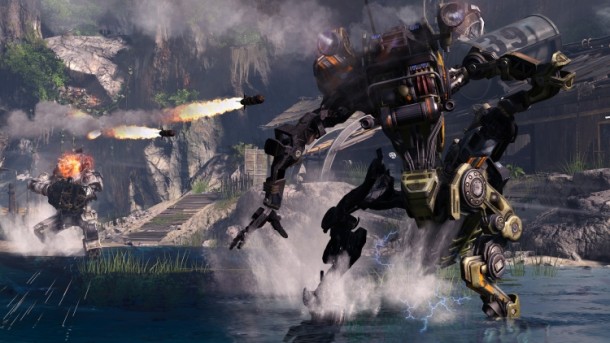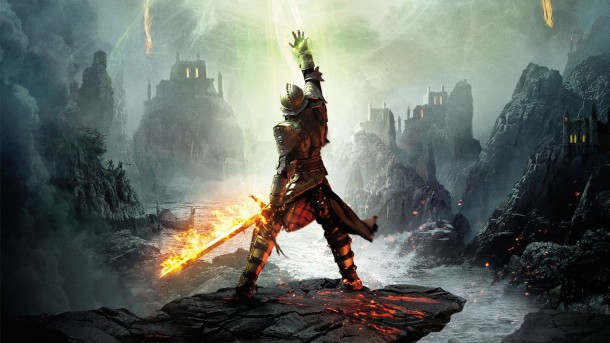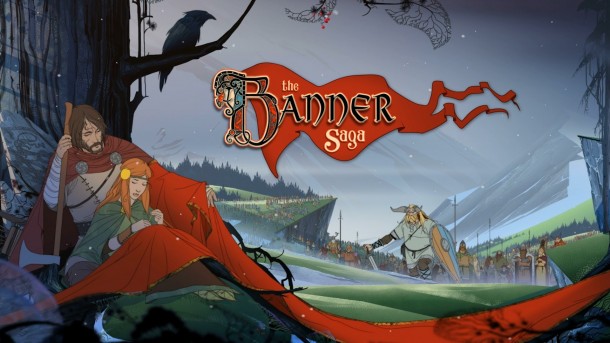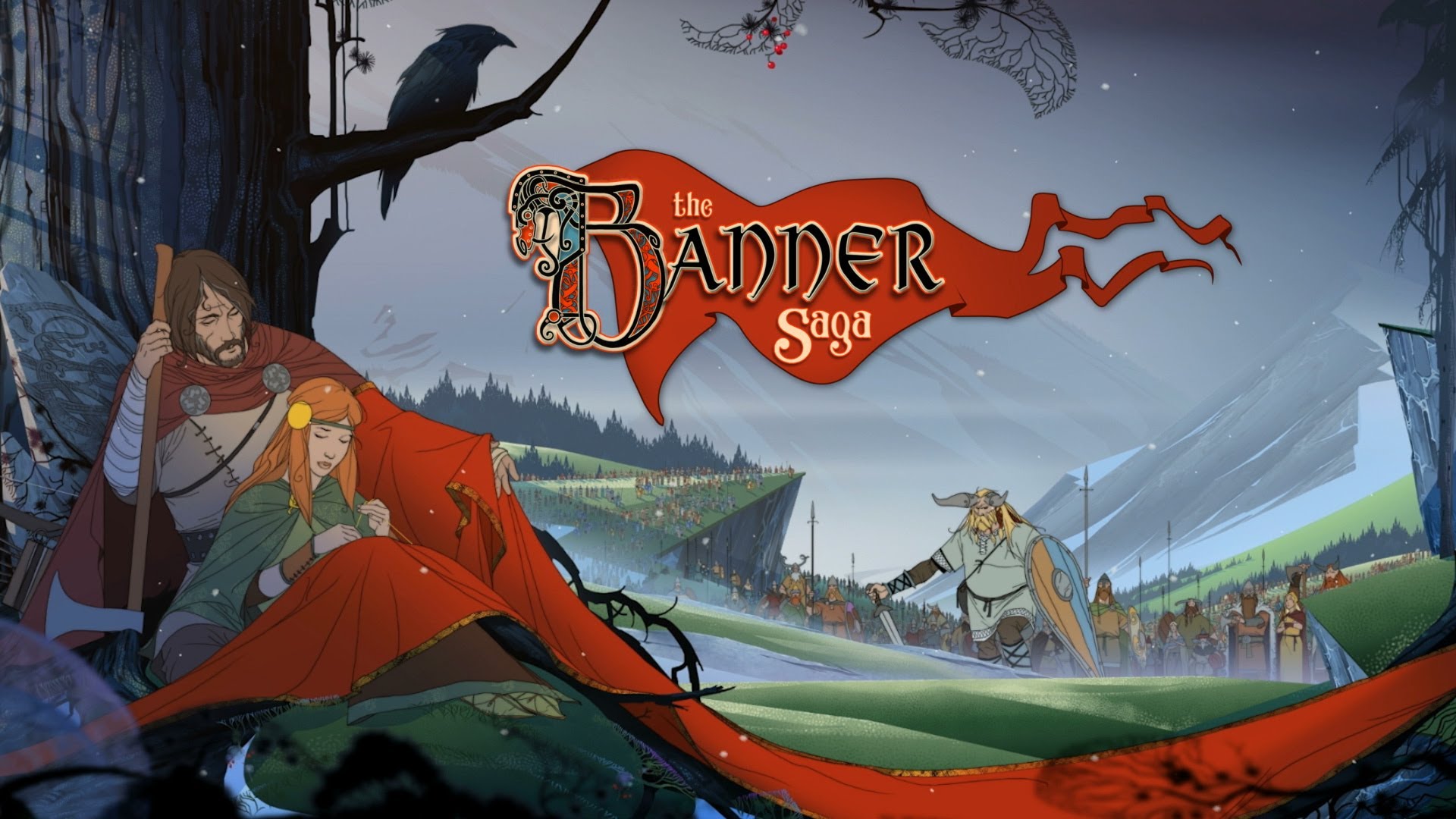Page 1 Page 2
Titanfall

Titanfall, they said, was going to be the “Call of Duty killer.” A game from the creators of one of the most popular multiplayer games that would dethrone their own creation. The advertisements around the game implored us to “prepare to drop” out of the sky in giant robots that would completely distinguish Titanfall from the rest of the shooter market. Well, the only thing Titanfall really dropped was the ball.
Titanfall’s core mechanics of parkour/jetpack-infused first-person shooting with the added treat of giant robots to stomp around in was fun for a time, but I quickly found myself burnt out on it. I found Titanfall, at its simplest level of shooting people from match to match, to be far less enjoyable than something like Halo 2. The gimmick of dropping robots out of the sky ended up feeling like just that, a gimmick, especially when a mode without them was later added. After a short time, I was completely done with Titanfall, and there were virtually no progression system hooks to keep me invested. I’m not one to say shooters these days absolutely need some kind of progression system or anything, but when a game comes from the people who popularized that style, well, it could have helped to have more.
Fable Anniversary

There’s not much for me to say about this one. Part of why I only played a few new games this year, including this one if you count it as new, was because I got caught up in replaying old favorites. It was nice to be able to revisit one without having to grit through the decidedly aged graphics. Although, playing this also highlighted to me just how huge the trend of updating old games for new, or in this case new-ish, consoles has gotten. If I weren’t attached to this game from ten years ago, could I recommend it? Probably, but at least this one worked, compared to some other remakes of Microsoft games from 2004.
Dragon Age: Inquisition

This was the big one for me, the one I’d essentially been waiting since 2009’s Dragon Age: Origins to play. After being disappointed by Dragon Age II in 2011, though I later came to appreciate it, I was ready to believe the hype for Inquisition and be blown away. Instead I only found disappointment. In so many ways, I found Inquisition to represent nearly everything wrong with AAA games these days. Compared to Origins, Inquisition felt like little more than the result of a checklist of how to make a game that sells, continuing to dismiss the classic RPG style of the original, resulting in half steps that don’t please anybody.
There’s the attempt to emulate the mega-hit Skyrim’s massive open world, but instead only produces several totally disparate worlds that are as disconnected from each other as they are the story. There’s the bloat of meaningless content that seems like it was made just so the back of the box could extol how big the game was. Most of the sidequests can be described as the kind of meaningless time wasters usually reserved for MMOs. The zones themselves are just as bad. It’s entirely possible to completely skip at least three of them without any noticeable impact on the story. There’s the faux-tactical combat that takes away the deeper options of the previous games, making it impossible to coordinate party members tactically while still lacking the more physical combat of something like Skyrim or Dragon’s Dogma.
Even the story, the number one reason I came to this game, felt forced. I could go on and on about how it feels lazy and discordant with what the previous games established, but even simpler than that is just the way it’s so rushed and flat. At this point too, the continuous barrage of choices has come to feel like I’m playing a meta-game of picking out my world state for the sequel rather than actually engaging with this one. I should know better than to care about choices, though, since Inquisition seems to finally put to rest the Bioware promise of making your choices matter. Things from the first two games that seemed like they could shake the world only produce at best a new NPC to talk to once or a frivolous war table mission that’s little more than a mobile game “energy-meter” time sucker.
Iron Bull’s pretty cool though.
The Banner Saga

I feel almost the complete opposite for The Banner Saga as I do for Dragon Age. Where I was continually let down by Dragon Age, The Banner Saga provided me again and again with beautiful surprises. I expected almost nothing from this game. It was a small tactical combat game, a genre I usually avoid, from a new developer in the middle of January. However, if this were a proper list and even if I’d played more of the year’s biggest hits, I am confident The Banner Saga would still be my absolute game of the year.
A lot of people have described it as “magic viking Oregon Trail.” That’s a little reductive, especially since it ignores its detailed and challenging tactical combat, not to mention its unique and beautiful classic animation art style, but it’s a fair description and actually a huge part of why I loved it. While you trudge your caravan through the world, yes, just like Oregon Trail, you’re constantly met with pop-up events and decisions to make. Do you turn away a pack of beggars? Do you let your starving soldiers eat some wild berries? Do you risk attacking an enemy army or potentially exhaust your supplies to avoid them?
Every decision has an immediate, tangible reaction as well as consequences that reveal themselves further down the line. Though I wasn’t disappointed by Dragon Age until nearly a full year after playing it, I can’t help but feel that The Banner Saga has found a much better way to implement what Dragon Age tried to do. I don’t feel like I’m just preparing for the next game, instead I made every decision with the immediacy of the situation in mind, and even then it is subtly building towards the future. Surely, that’s partly a psychological thing on my part, but I feel good about saying The Banner Saga did a much better job of putting me in that kind of mindset than Dragon Age did.
Page 1 Page 2


No Comments